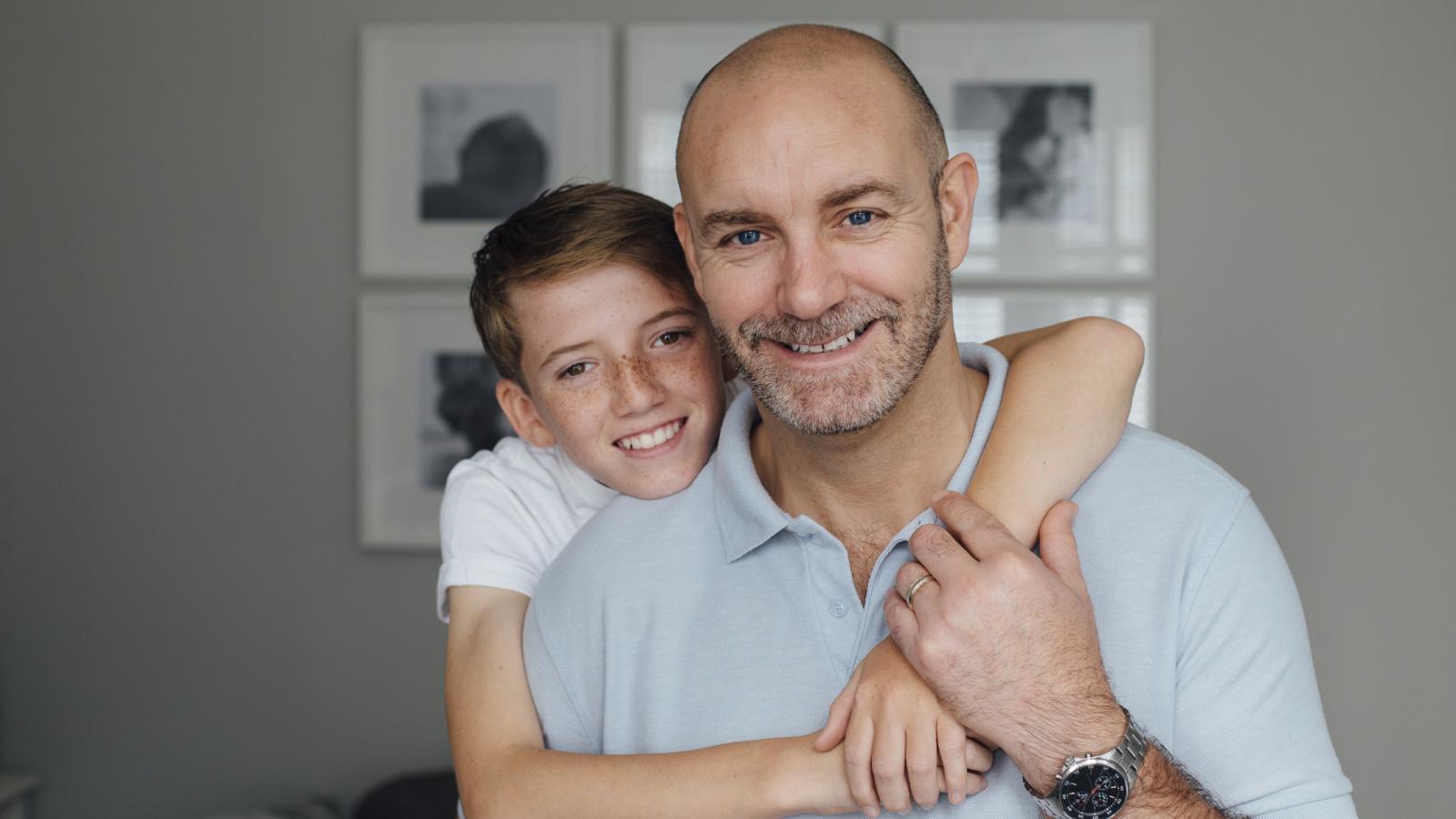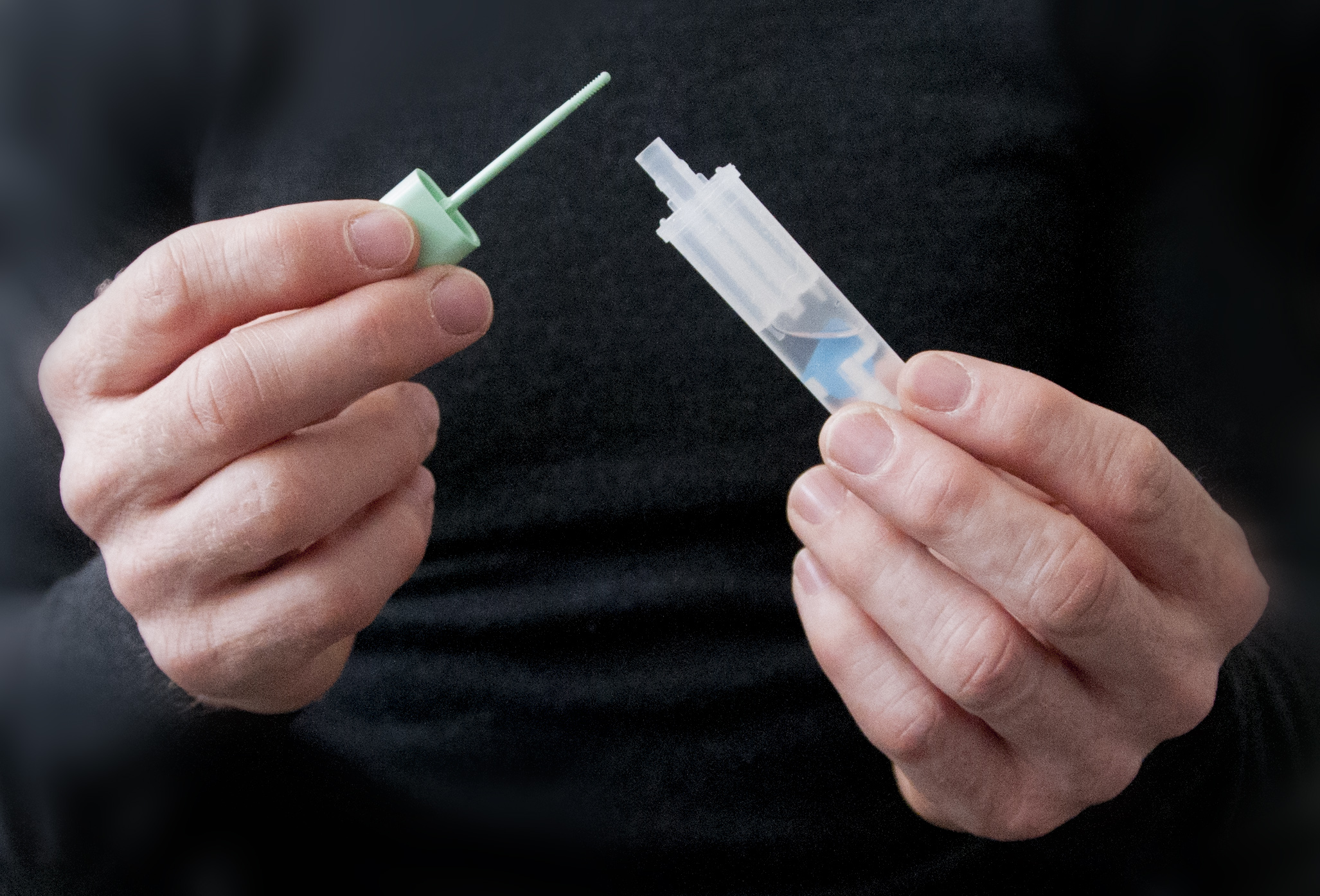Lynch syndrome

What is Lynch syndrome?
Lynch syndrome (LS) is a genetic condition that is passed on within families (inherited). A syndrome is a group of signs and symptoms that occur together and point to a particular condition.
Most people who have Lynch syndrome are well and don't know they have Lynch syndrome. However, someone with Lynch syndrome is more at risk of developing certain types of cancer than other people of a similar age.
Colorectal (bowel) cancer is the cancer most associated with Lynch syndrome.
People with Lynch syndrome may develop polyps. A polyp is an abnormal growth of tissue in the lining of your bowel. They can vary in size. Colon polyps are very common, and most are harmless. But if they are left untreated, they can lead to cancer.
It causes non-cancerous growths called polyps that can lead to cancer if left untreated. Patients with Lynch syndrome tend to get bowel cancer at a younger age.
Lynch syndrome also increases the risk of some other cancers.
Cancers associated with Lynch syndrome
Lynch syndrome increases the risk of a number of cancers. In general, the risk is highest for colorectal (bowel) cancer, but it depends on the gene affected.
Some colorectal (bowel) cancers are hereditary. Up to 5 people out of every 100 diagnosed with bowel cancer have Lynch syndrome. Other cancers linked to Lynch syndrome include:
- Endometrial (womb)
- Urothelial (kidney, ureter bladder)
- Ovarian
- Stomach
- Small bowel
- Bile duct/gall bladder
- Brain
- Pancreas
- Prostate
- Skin
How is Lynch syndrome inherited?
Genes contain your genetic material (DNA). Genes control the way cells grow, repair and die. Genes are passed on from your parents, which means that you inherit them.
Cancer is caused by changes in certain genes. For example, genes that control how cells grow and multiply and genes that help repair DNA. If these processes do not work as they should, a cell can become cancerous.
Lynch syndrome means that one of the genes that helps to protect us from cancer is altered and does not work properly people with Lynch syndrome have less protection against cancer. People with Lynch syndrome do not always develop cancer, but it does increase your risk.
Which genes are affected in Lynch syndrome?
Changes in a number of different genes may lead to Lynch syndrome.
The main genes involved in Lynch syndrome are MLH1, MSH2, MSH6, PMS2 and EpCAM. An alteration in any of these genes can be associated with an increased risk of developing certain cancers. The risk is usually determined by which of these genes has an alteration linked to cancer, and other factors such as your sex and your family history of cancer.
Who might be at risk of having Lynch syndrome?
Family history can give healthcare professionals information about who may be at risk of Lynch syndrome. For example:
- People with 3 family members with a Lynch-syndrome related cancer (colorectal cancer or womb, small intestine, ureter or renal pelvis cancer)
One family member who is a first-degree relative of the other two. A first-degree relative is your parent, brother or sister, or your child.
and
Two generations in a row of the same family must be affected by cancer
and
- One of these relatives must be diagnosed with cancer before the age of 50.
If you are concerned about your family history, it is important to discuss these concerns with your GP. They may refer you to a family risk-assessment or genetics clinic. Usually people attend genetics clinic after Lynch syndrome has been diagnosed in a close family member.
What should I do if I have a strong family history?
Talk to your GP if you are concerned about Lynch syndrome and a history of cancer in your family. They can refer you to a genetics clinic if they think you may be at risk.
How is Lynch syndrome diagnosed?
Lynch syndrome is diagnosed by genetic testing.
There are 2 main types of genetic testing:
Diagnostic testing
Diagnostic testing looks for a genetic cause for cancer in families with a strong history of the disease. Usually this starts when someone has been diagnosed with cancer and their tumour is screened for Lynch syndrome. If the results are abnormal then genetic testing (of blood or saliva sample) can look for alterations in Lynch syndrome genes. This is the most common way that Lynch syndrome is discovered.
Please note, genetic testing may still sometimes be offered even if tumour analysis has returned a normal result.
If either of your parents has Lynch syndrome, you have a 1 in 2 chance (50 per cent) of inheriting the gene alteration. In this case, you can ask to be referred for predictive genetic testing.
Predictive testing
If a member of your family has been diagnosed with Lynch syndrome after genetic testing, you can ask to be referred for testing to see if you also have Lynch syndrome. The testing looks for the known genetic alteration linked to Lynch syndrome by examining at a sample of your blood or saliva (spit) in the laboratory. It is up to each family member to decide if they want to be tested to find out if they have Lynch syndrome.
It can take many weeks to get the results of genetic tests. If you have genetic testing, you will be given information and counselling before the test takes place as well as after you get the results.
What is the referral process and where is testing done?
In most cases, your GP, cancer team or another healthcare professional will refer you to genetic testing services. For example, at James’s Hospital or the National Centre for Medical Genetics at Children's Health Ireland, Crumlin, Dublin. Some appointments may be done remotely or at regional outreach clinics.
There are also private clinics offering genetic counselling and testing services. You will still need to be referred to these clinics.
What does having Lynch syndrome mean for me?
If you have Lynch syndrome, it does not mean you will get cancer – but it increases your risk.
Your genetic counsellor can talk to you about which gene is affected and what this means for your cancer risk.
You can get cancer at any age, but the risk associated with Lynch syndrome increases with as you get older. For example, the risk of bowel cancer in males with an altered MSH1 gene is around 3% at age 30 - the same as the general population risk. By age 75 the risk is around 56%. Risk also depends on your sex and the gene affected. For example, an altered MSH6 gene increases the risk of ovarian cancer to around 6% by age 75, whereas an altered MSH2 gene increases it to around 13%.
If you have a diagnosis of Lynch syndrome, it could be worrying to know that you have a higher likelihood of developing cancer. On the other hand, you are armed with knowledge and your genetics healthcare professional will advise you about any screening tests, checks or treatments you should have. These can help to prevent cancer developing or diagnose and treat it early, if it does happen. The recommendations for you will depend also on your family history of particular cancers, the gene affected and any other factors that increase your risk.
Risk reduction for Lynch syndrome-related cancers
Colon (large bowel) screening
Screening involves a test called a colonoscopy, where a camera is used to examine the bowel for any abnormal changes. You will be advised to have this every 2 years, usually from the age of 25 years onwards. If the MSH6 or PMS2 genes are affected, colonoscopies are recommended from age 35.
Stomach screening
If you have Lynch syndrome and there is a history of stomach cancer in your family or other factors that increase your risk, you may have screening for changes in the stomach using a scope (camera) test called a gastroscopy.
Risk-reducing surgery for endometrial (womb) or ovarian cancer
If you have a high risk of endometrial or ovarian cancer, you may be advised to have risk-reducing surgery. This involves removing the womb and ovaries. You can discuss this with your doctor or genetics team.
Telling family if a genetic change is found
If you have Lynch syndrome, your close (first degree) relatives may also have it. First degree relatives are parents, children and brothers and sisters. Telling your family about your Lynch syndrome diagnosis can be a difficult task.. But telling your family can help them to make decisions about testing and reducing their risk of cancer. The genetics team will be able to advise you about this and discuss with you how you might tell your relatives. The counsellors can also give you letters explaining your diagnosis.
For more information about talking to family, and about genes and inherited cancers, download our factsheet Cancer and Genes or talk to a cancer nurse on our Support Line 1800 200 700.
What happens if I do not inherit the gene?
If testing shows you have not inherited a gene alteration linked to Lynch syndrome, in most cases you will not need any extra screening, tests or treatment. However, if there is a strong history of bowel cancer in your family, you may be given advice on additional bowel screening.
You should continue to take part in national screening programmes, such as BowelScreen (age 59-69) and be aware of any changes in your body and report any symptoms to your doctor.
Be aware of signs and symptoms
It's important for everyone to be aware of any changes in your body that are not normal for you, especially if you have an increased risk due to Lynch syndrome. Always get any changes checked by your GP, even if you have had a screening test or are due one soon.
Many changes can be caused by conditions other than cancer, but it's important to always get them checked.
Bowel symptoms
Changes include:
- A lasting change in your bowel habit – going more often, looser motions or constipation.
- Blood in your poo or bleeding from your back passage.
- Pain or discomfort in your tummy area or back passage.
- Trapped wind or fullness in your tummy.
- A lump in your tummy area or rectum.
- Feeling you have not emptied your bowel fully after going to the toilet.
- Unexplained weight loss.
Feeling tired and breathless due to anaemia (fewer red blood cells).
Womb (endometrial) symptoms
- Heavier than normal periods
- Bleeding between periods or after the menopause
- Abnormal vaginal discharge that may have an odour and be dark pink or blood stained
- Pain in your lower abdomen or back of legs
- Discomfort or pain during sex
Ovarian symptoms
- Bloated feeling
- Persistent swollen tummy
- Pain or dragging sensation in your lower abdomen (tummy), back or legs
- Vague indigestion or nausea, poor appetite and feeling full quickly
- Changes in your bowel or bladder habits: E.g. constipation or needing to pass water urgently
- Feeling tired all the time
- Irregular periods or bleeding after menopause
- Pain during sex
- Abnormal vaginal discharge or bleeding (rare)
Stomach symptoms
- Weight loss
- Feeling sick
- Loss of appetite
- Bloating
- Difficulty swallowing.
Skin symptoms
- Abnormal changes to your skin, such as lumps, red or sore spots, ulcers that don’t heal, a scaly or horny lump, rough scaly patches or a new or changing mole.
Prostate symptoms
- Passing urine more often, especially at night
- Trouble starting or stopping the flow of urine
- A slow flow of urine
- Pain when passing urine
For more information
Phone
1800 200 700


